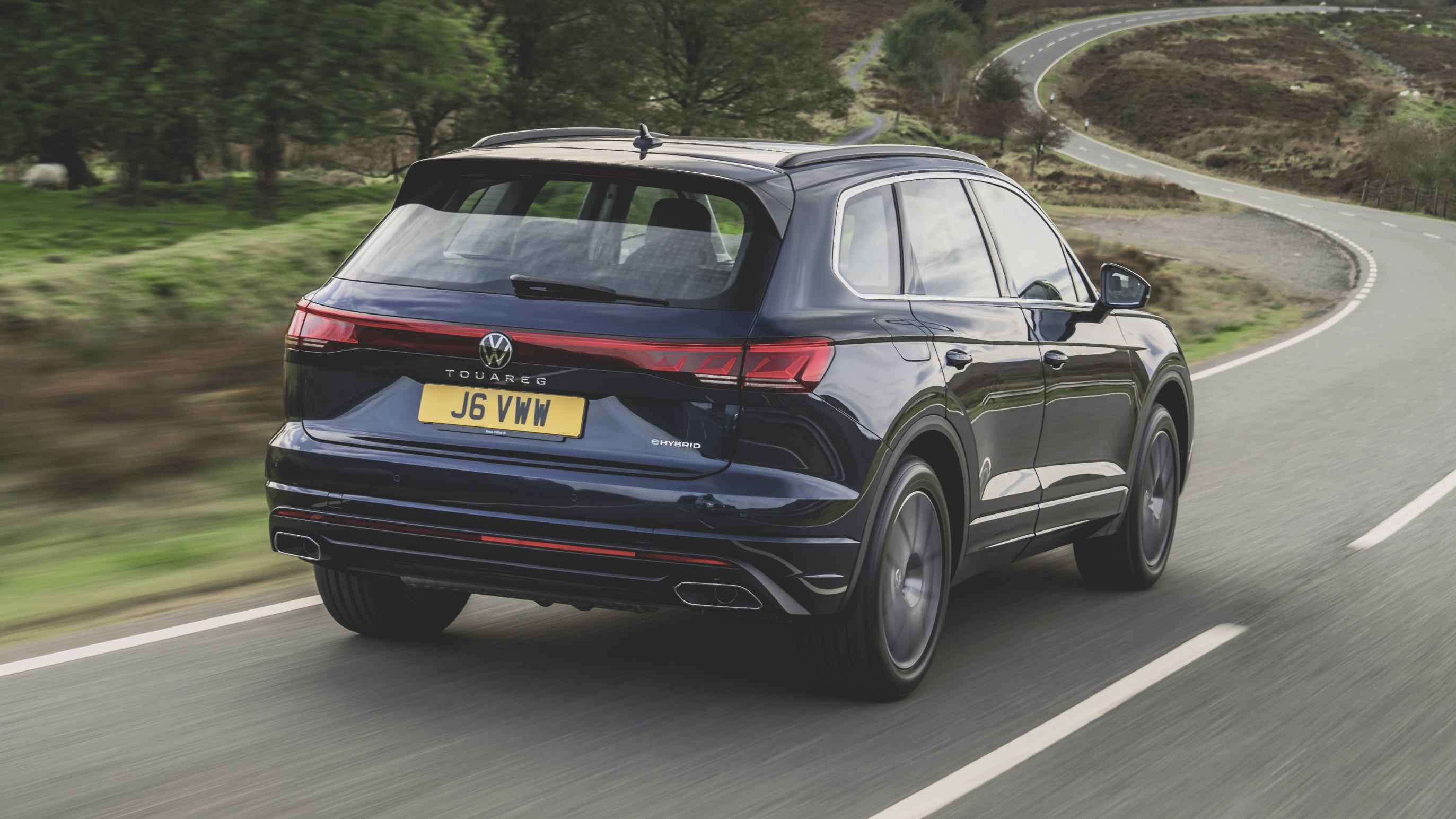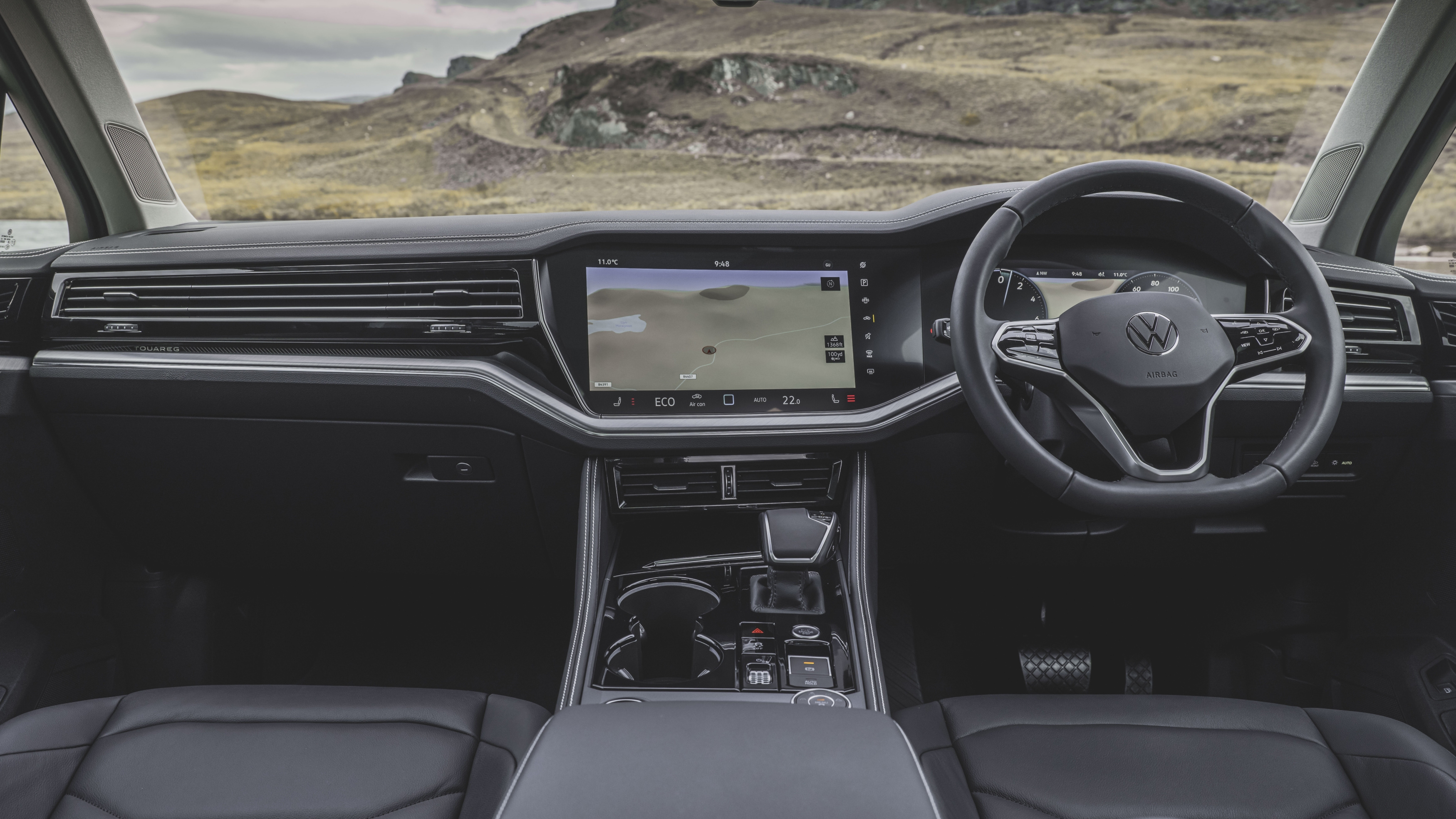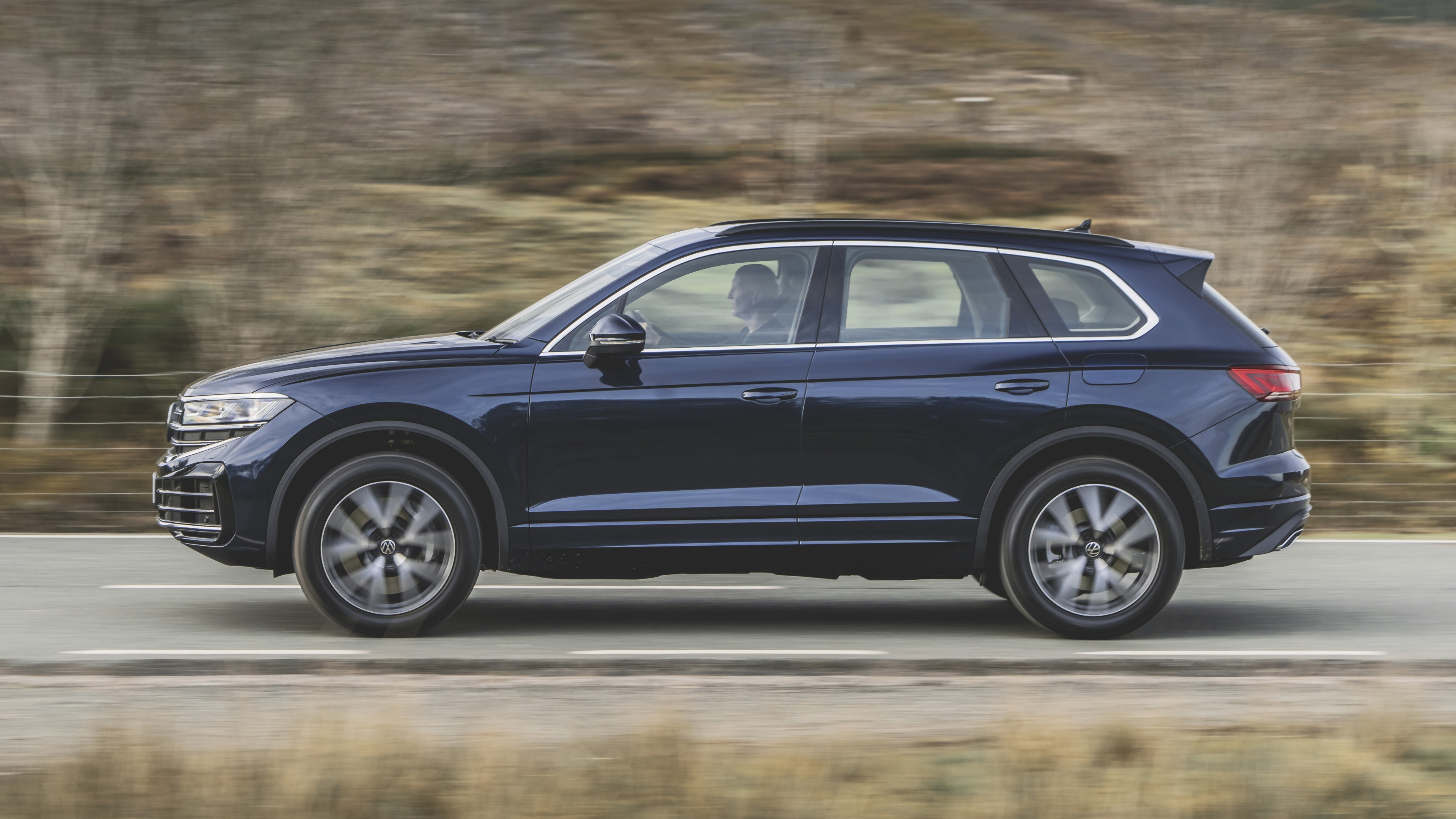
Interior
What is it like on the inside?
Back in 2003, when the first Touareg was launched, it was the outrageously torquetastic V10 TDI that had everyone talking. As well the choppy ride quality. This time it’s all about the tech, with the cabin having seen one of the biggest overhauls from VW in decades, repositioning the Touareg entirely and bringing it bang in-line and even ahead of its fiercest competitors.
Where the old car felt like a jacked-up Golf from the inside, the new car is properly premium and a massive improvement. That’s thanks to the ‘fully digitised Innovision Cockpit’, or as anyone else would call it, two enormous screens stitched together to look like one big one. It looks fantastic, is incredibly minimalist and has a tech artillery to back it up. Though you’re stuck with haptic feedback steering wheel controls whatever spec you go for.
Annoying. What's the rest of the tech like?
The Innovision Cockpit has been updated during the facelift with all models now getting a 12-inch digital instrument cluster (looks the part, works effectively, no complaints here) and 15-inch touchscreen (far better than that you’ll find in any of the VW ID. products, though the sliding temperature controls are irritating and unnecessary) as standard. There’s also wireless app integration, faster charging USB-C connections, improved voice control, and more soft touch materials.
That latter point is important, because where pre-facelift some interior materials felt like they’d suffered in quality to help finance the incredible dual screen display, this has been addressed with more soft touch materials including softer armrests and doorcards, plus foam padding on the centre console to help cushion your legs/knees from bumps. Thoughtful.
How much space is there?
The third-gen car has actually increased in size but dropped around 100 kilos in weight. Compared to its predecessor, it’s 44mm wider and 77mm longer but lower than its second-generation brother, meaning improved passenger space, and it certainly feels plenty roomy both front and rear.
Another win is that there’s even more boot space, up 113 litres to 810 in total with the rear seats in place (655 litres in the hybrid due to the batteries). That's more than the Merc GLE, BMW X5, Porsche Cayenne and Audi Q7. So you can lob pretty much all you can think of this side of a medium-sized elephant back there and it’ll probably fit.
Featured

Trending this week
- Car Review
BMW iX3






